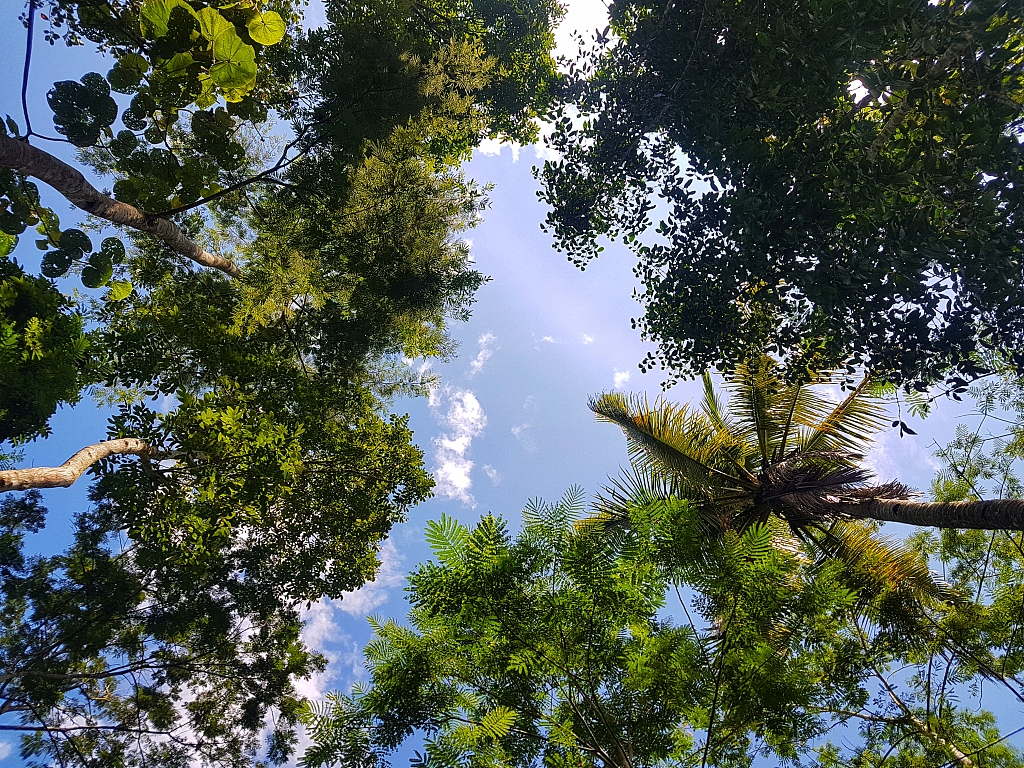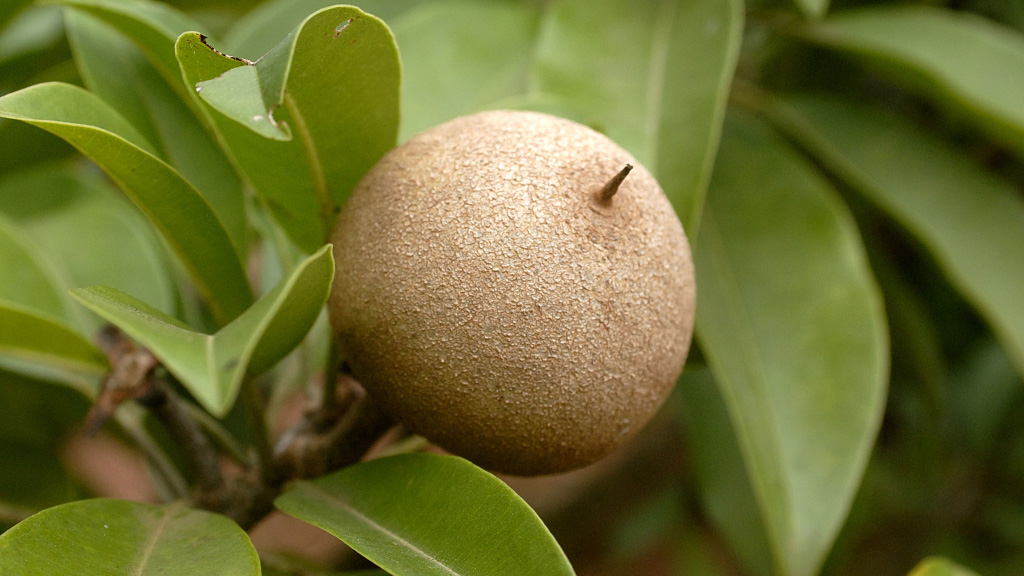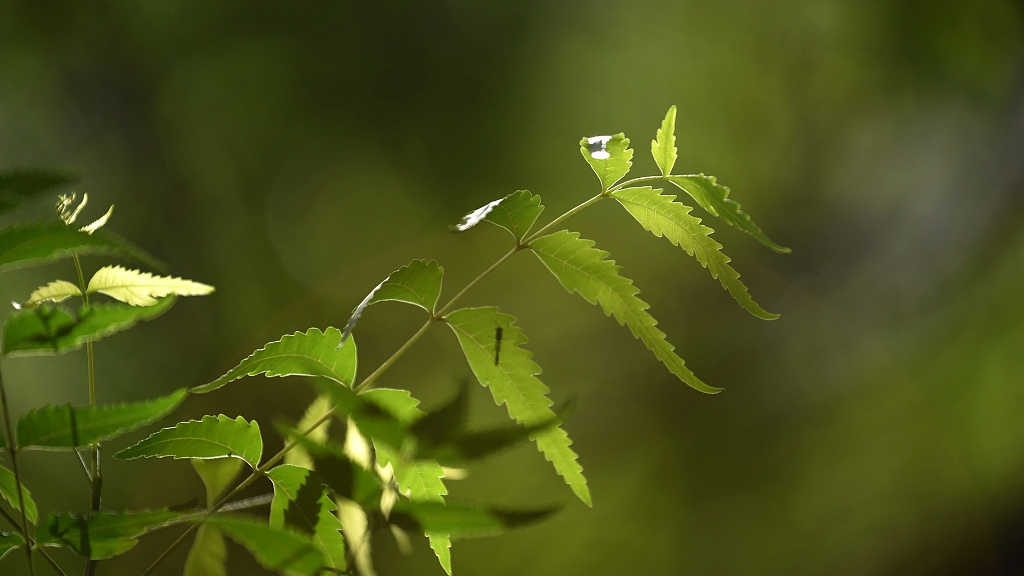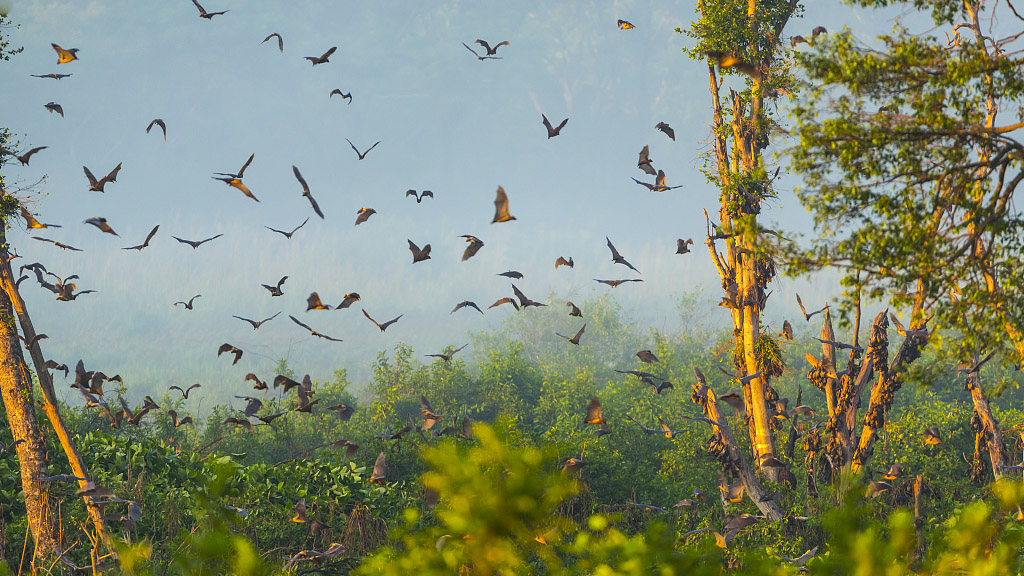Bats have been frequently associated with diseases. In the last 50 years, outbreaks of viruses around the globe have been frequently traced back to them. Many scientists also blame bats for the recent outbreak of the novel coronavirus disease (COVID-19). However, the species has seen its territories be invaded to give space to commercial farms and cropping fields.
With such a bad image, some might ask: why can't we just eliminate bats? That's because bats are important to the earth's ecosystem. They play such a crucial role in forest regeneration that they can hardly be replaced.

Tropical forest in Indonesia. /VCG
Tropical forest in Indonesia. /VCG
Tropical forests are one of the most diverse ecosystems on the Earth, but they are also severely threatened by deforestation due to agricultural, industrial and urban expansion, drought, fire, and disease.
However, human reforestation efforts are limited by budget and resources. This is when animal seed dispersal becomes so crucial in the restoration of forests.
In many tropical forests, bats are the primary forest restorers. Sometimes dropping more than 95 percent of first "pioneer plant" seeds required to begin regrowth.

Sapodilla tree is the original source of chewing gum. /VCG
Sapodilla tree is the original source of chewing gum. /VCG

Neem tree is one of the world's most important species for medicine. /VCG
Neem tree is one of the world's most important species for medicine. /VCG
Bats are the primary seed dispersers of Central America's sapodilla tree, the original source of chewing gum. Fruit-eating bats appear to be the best long-distance dispersers of the Neem tree, one of the world's most important species for medicine.
Bat feces, also known as guano, are significant fertilizers. They provide essential energy for countless cave microorganisms, many of which are of potentially great value for improving detergents, medicines, and waste detoxification.
Bats from Khao Chong Phran Cave in Thailand provide annual fertilizer sales of 132,000 U.S. dollars, rice crop protection valued at 300,000 U.S. dollars.

The reason why bats are so important in seed dispersal is because of their exceptional species diversity, abundance, and a variety of feeding habits. A study done in deforested areas in Southern Mexico found that bats disperse more seeds per species than birds.
However, this efficient seed disperser is facing big trouble -- the loss of natural habitat due to human invasion. So it is best to just leave them alone, not only to reduce the chances of getting infected with diseases, but also to let them thrive and save world's forests.
Read more:
Bats eat insects and save billions of dollars each year
Bats: the Pandora's box you do not want to open
(If you want to contribute and have specific expertise, please contact us at nature@cgtn.com.)